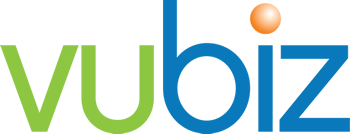 |
Written by Liz McDermott |
California Governor Gavin Newsom approved Assembly Bill 3234 on September 22. This new law requires employers to reveal the outcomes of audits conducted on their child labor practices. Starting on January 1, 2025, AB 3234 dictates that employers who voluntarily carry out a social compliance audit to determine the presence of child labor in their operations or practices must make the results public on their company website.
AB 3234 does not require employers to conduct audits. It simply imposes a responsibility on those employers who choose to carry out audits to reveal the findings of their audits concerning compliance with child labor laws.

Which Employers are Subject to AB 3234?
The term "employer" is not clearly defined in AB 3234, nor does it specify the extent of an employer's "operations or practices" in which the relevant audits occur. The bill is a revision to the California Labor Code that pertains to California employers defined by Section 1132.2 of the Labor Code.
AB 3234 aims to restrict its obligations to only those employers who choose to perform an audit.
What are the Required Disclosures from an Employer?
According to AB 3234, disclosing the results of a "social compliance audit" is mandatory. The term "social compliance audit" encompasses a voluntary and non-governmental evaluation to ascertain whether an employer's practices comply with state and federal labor regulations. These regulations include those against child labor, wage and hour laws, and health and safety standards.
AB 3234 clarifies that the employer is only required to reveal "child labor" findings, described as any work done by an individual under 18 that violates state or federal regulations. The employer must specifically disclose the following details through a prominent and easily accessible link on their website:
- Employers must mention the date, time, and shift (day or night) during which the audit was conducted.
- The audit must include whether the employer participated in or supported the use of child labor.
- The employer should provide any written policies and procedures regarding child employees.
- It is essential to determine if the employer exposed children to hazardous situations that could impact their physical and mental well-being.
- The audit needs to assess if children were working during regular school hours, outside of regular hours, or during night hours for the employer.
- The auditing company should state that it is not a government agency and is not authorized to verify compliance with state and federal labor laws or other health and safety regulations.
Numerous employers perform audits protected under attorney-client privileges, which creates a gray area on whether the disclosure requirement of AB 3234 disregards these protections.
The Wider Picture of Assembly Bill 3234
The enactment of AB 3234 reflects the increasing attention given to ensuring corporate compliance with human rights. There is a noticeable trend in various jurisdictions, such as Illinois, the European Union, Germany, Japan, and Canada, towards implementing regulations regarding disclosure of child labor practices and due diligence. Moreover, the U.S. Department of Labor has recently stepped up its efforts to address violations of child labor laws, including stricter enforcement of the "hot goods" provision under the Fair Labor Standards Act.
Related Course: Complying with Canada's Modern Slavery Law
AB 3234 Compliance Suggestions for Employers
AB 3234 highlights California's increasing emphasis on promoting transparency and responsibility regarding child labor policies. Before AB 3234's effective date on January 1, 2025, California employers must identify the date of their first audit scheduled for 2025 and the number of audits they plan to conduct throughout the year. Employers must monitor the audits under AB 3234, as only social compliance audits conducted after the effective date will be required to report. California employers must also determine if their audits are voluntary and subject to AB 3234.
Numerous employers who could fall under the coverage of AB 3234 have already released disclosures based on the 2012 California Transparency in Supply Chains Act (CTSCA). This act mandates employers to reveal their efforts in auditing human rights concerns, such as child labor. Although the CTSCA disclosures cover a wider range, employers must ensure that the disclosed information aligns with any disclosures made under AB 3234.
Related Course: California Transparency in Supply Chains Act Compliance
It is important to note that AB 3234 may raise several constitutional, jurisdictional, and enforcement concerns that should be carefully examined by knowledgeable legal advisors when evaluating compliance efforts.
California Compliance Training
Are you concerned about your business's compliance with California regulations? These compliance training courses can help ease your worries by educating employees on relevant regulatory topics, reducing the risk of non-compliance.
- California Consumer Privacy Legislation
- California COVID-19 Prevention Non-Emergency Standards – For Employees
- California COVID-19 Prevention Non-Emergency Standards – For Employers
- California Pregnancy Disability Leave 2012 Updates
- California Transparency in Supply Chains Act Compliance
- California Workplace Violence Prevention - For Employees
- California Workplace Violence Prevention - For Employers
- Child Abuse and Neglect Reporting Act [California] (AB1963)
- Combating Human Trafficking in California
- Harassment Prevention Training for Employees [California] (SB1343)
- Harassment Prevention Training for Supervisors [California] (AB1825)
- Leaves of Absence [California]
- Musculoskeletal Injury Prevention Program (MIPP) for California Housekeeping
- Supervisor's Guide to Meals, Rests, Wages, and Hours Worked [California]
- Supervisory Law - California
- Wage and Hour Laws [California]
Contact Vubiz's experienced compliance specialists today to learn more about regulatory topics relevant to your business and get answers to your questions.
